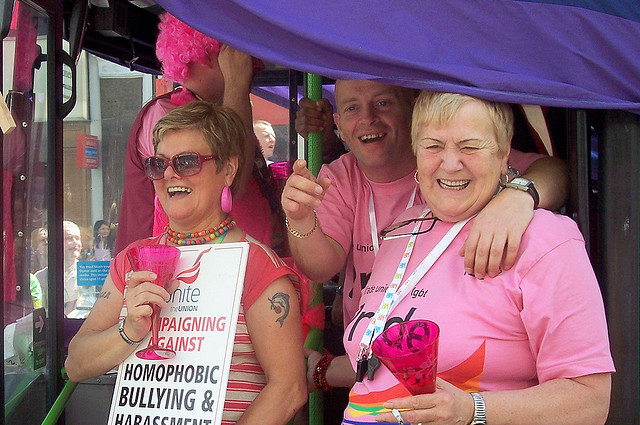
Later adulthood can be a period of many changes, especially in the area of our health. The experiences of aging LGBT persons may be categorized as regular experiences that accompany old age, with the addition of the lingering effects of discrimination and stigma. A unique set of challenges that includes not only the common aging difficulties, but the uncertainty when it comes to elderly care poses a lot of important questions even today. The recent emerging of LGBT retirement homes and centers in major cities is a positive indicator that there are more and more places where you can grow old being yourself, without having to suffer discriminatory treatment in a regular retirement center. The fact remains that knowing the challenges you may face in your aging days will help you go through this period much easier.
Here is a short list of some of the things you might have not heard about, but can still pose a risk for your health.
Depression
According to the World Health Organization, it is estimated that almost 350 million people are affected by depression worldwide, regardless of their age. In its worst outcome, it can lead to suicide. Among older adults (in general population) there are 1 to 5 percent of people with major depression, while that number grows up to 13.5 for those who need home care. Studies of both older lesbians and gay men pointed out that they have elevated levels of depression. One study showed that 30 percent of the participants in their research (233 gay men aged 50 to 87) reported depression. Another report found that among lesbians in their sample (1, 925 lesbians aged 17 to 80), more than 55 percent reported an experience with depression. These aren’t numbers to ignore. It is important to report such issues to your care giver or doctor, and receive treatment.
Cancer
This is the one silent disease sneaking up on everyone regardless of their age and sexuality. And that is why it is important to be aware of the danger and visit your doctor regularly. There are some forms that pose a greater risk than the others.
- Prostate Cancer
This form of cancer has the highest prevalence among men over the age of 60, in general. Most of our knowledge about prostate cancer is focused on erectile dysfunction and is based on aging heterosexual men in long relationships. And there is a certain level of limited understanding of prostate-related problems with gay men. Still, there has been no evidence of increased rates of prostate cancer among older gay men or transgender women.
- Breast Cancer
The most prevalent form of cancer for women in their later life is breast cancer. In fact, in most of the studies it has been suggested that non-heterosexual women had higher rates of breast cancer. They were also less likely to have a mammogram.
Regular checkups are essential for remaining healthy, especially after the age of 40.
Macular Degeneration
Macular degeneration is one of the most common causes of blindness and severe vision loss. It is estimated that 1 in 7 people is affected by this disease among the population older than 50. There are no indicators that this condition impacts the LGBT community any differently, but since studies show that homosexuals, bisexuals and transgender people will avoid or delay health care more often, it can pose a greater risk. Since this is a progressive condition, it is important to seek medical aid and as soon as possible undergo macular degeneration treatment, which can slow down or stop the progress, and thus prevent further loss of vision.
Cardiovascular Disease
The LGBT population is more sensitive to cardiovascular diseases and hypertension due to the greater levels of stress they are dealing with, usually related to the stigma caused by personal rejection and ostracism, discrimination, and criminal victimization. One study showed that antiretroviral treatment may also be linked with cardiovascular complications, such as myocardial infarction. For transgender individuals, hormone therapy can have compound negative effects to certain risk factors. These diseases are easy to overlook because they take long periods to develop. It is important to take them seriously, reduce the risk factors (smoking, stress, alcohol, etc.) and consult a doctor.
In general, the LGBT community experiences the same age-related risks as heterosexuals, but with a few added complications. And since LGBT people are often more reluctant to get medical attention and advice, that increases our level of vulnerability. We need to be more proactive, especially as we pass the 40-year mark. Avoidance is not an option, and procrastination can have serious consequences. In the end, our health is mostly in our own hands. But by staying aware of possible health issues and with regular check-ups with our doctors, there is no reason not to come out of this a winner.
—
photo credit: Richard Tanswell via Flickr, cc
[box type=”bio”]
EMMA LAWSON is a passionate writer, teacher and a mother to two spirited boys.
[/box]



